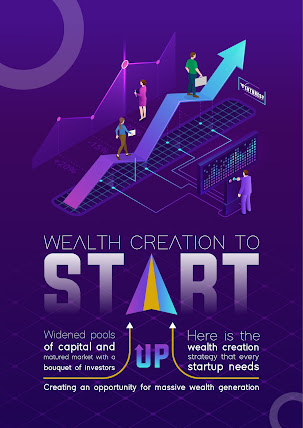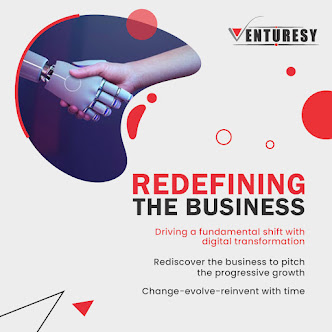Management consulting in Madurai | investment banker in Madurai
The future-ready business model in the retail industry
The retail industry
is witnessing seismic shifts internally as well as externally. Retailers are
adapting to future-ready business models with the changing winds to become more
consumer-centric and operate more efficiently than before. The growth of the
internet has powered upheavals in the retail landscape. Presently, most large
retailers have morphed into multichannel firms where the same customers visit
the retail through different channels. The industry transformed the focus from
selling products to engaging and empowering customers. The retail industry
currently focuses on customer experience and for which, the retailers intend to
attune the business model for the new-age sequence. The retailers have to
fundamentally rethink the operations for which business model consulting will
help you. Find the ideal way to organize, propel and employ the key success
factors.
Retail is the
process of selling consumer goods or services to customers either through
multiple channels or directly to earn profit. The retail industry has developed
a business model with the evolving changes in the environment, and a value
proposition aligned with consumer expectations. External features are bringing
changes in the internal factors like emerging new technologies, changing
consumer behaviors, increasing competitive pressure and the non-conventional
expectation of the millennial generations are demanding retailers to rethink
their operational areas and way of working.
A business model
is a framework in which a business chooses to serve its customers and
stakeholders. The retail business model depends on the product or service
offered by the retailer and the competitive pricing policy he adopts. There are
B2B, B2C, D2C, inventory-led business models (for e-commerce/e-tail), on-demand
business models, and peer-to-peer or two-sided marketplace business models.
Generally, the
conventional retail business model has a chain of intermediates – manufacturer,
wholesaler, distributor, retailers and finally to the consumers. The digital
transformation and reimagined business model has broken the long-chain process.
As retailing is all about having a high margin of profit, the D2C business
model eliminates the middlemen and directly selling to customers has been much
easier now due to the multi-channel operations. There is instant rice in D2C
brands as it is both cost-efficient and time-saving. Both brick and mortar and
e-commerce stores are adopting the D2C model under the inventory-led model. If
you are looking for more advice on the business model trends in the retail
industry based on the geography, market condition, user population and growth
velocity, then you could get an advisor for a startup to redefine your business.
Business model consulting is the primary step towards success in the
volatile market.
Big Bazaar in India
is a renowned retail group having the first-mover advantage and brought changes
in the buying behavior of the people. Their model focuses on consumers by
giving the best possible deals and creating value to their money – discount
hypermarkets. Trent entered the retail industry with Westsides that rapidly
transformed the Indian retail landscape with Indian and foreign brands jostling
for customers and adopted a private label format; one of the prominent ways to
enhance the profit. Flipkart, the e-commerce giant in India has followed the
inventory-led model. It began with a consignment model where goods were
procured on-demand and turned into inventory e-tailer. They managed the balance
between inventory and delivery costs. And Amazon India has been practicing the
marketplace business model since its launch.
The recent unicorn
company, Nykaa follows an inventory-led, D2C model and has been showing
profitable growth since day one. E-commerce /e-tail has seen a strategic push
in the economy with the impact of pandemics. Nykaa, being the omnichannel, had
stellar growth with various innovations induced in the business. but the
fundamental success factor is contributed to the business model. Changes in
strategy require changes in the underlying business model. It has two parts.
· It includes all the activities
associated with making a product or service – manufacturing, designing etc.
· The second includes the
activities associated with selling the product or service – reaching the
customers, distributing, or delivery method.
Any changes in these parts constitute the new-age business model and the changes are processed to build a future-ready retail business model. Innovation can be brought in any of these processes. The new retail environment in India has transformed the retail industry to think beyond conventions. The focus shift towards customer experience has led the retail industry to bring innovative approaches in the end-to-end process. Without the proper business model, the firm fails to deliver what they intend. The Indian retail sector faces huge challenges in supply chain management, human resource, logistics, technology and customers which can only be sorted with the new-age business model employed with technology. Business models will improve the scope of high penetration and built-in efficiency to expand and satisfy the increasing customer base. Business models which are cost-effective and suit diversified cultures will do well in the retail sector in the coming future.




Comments